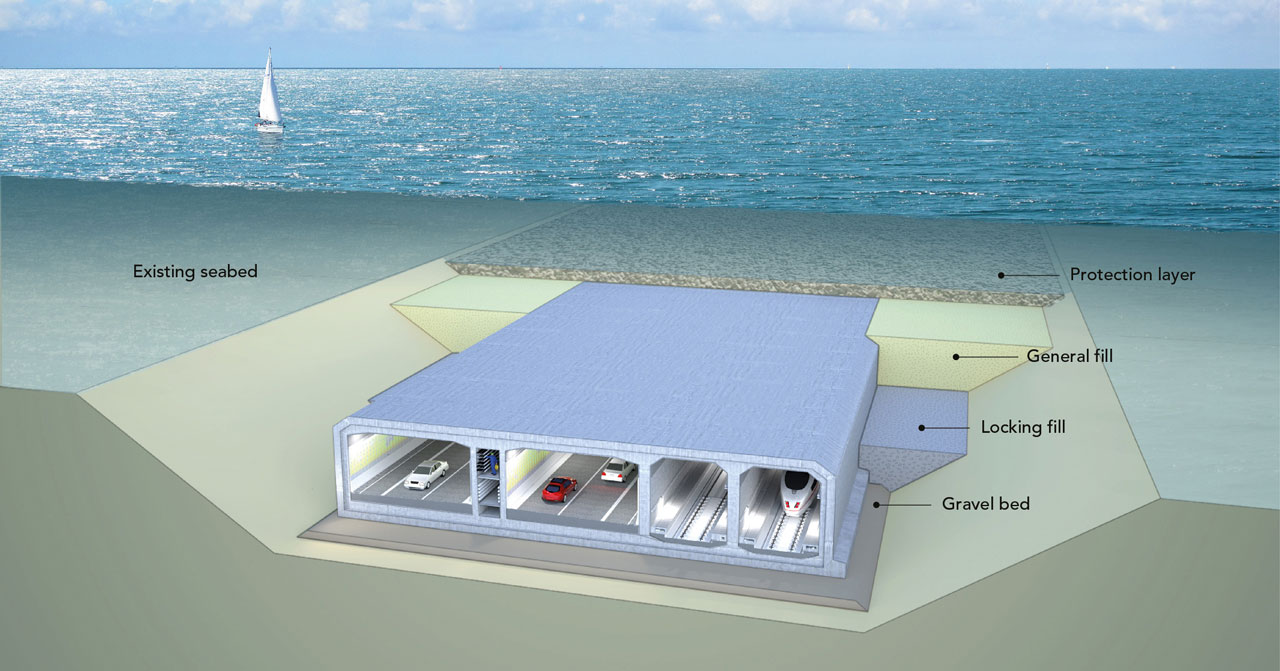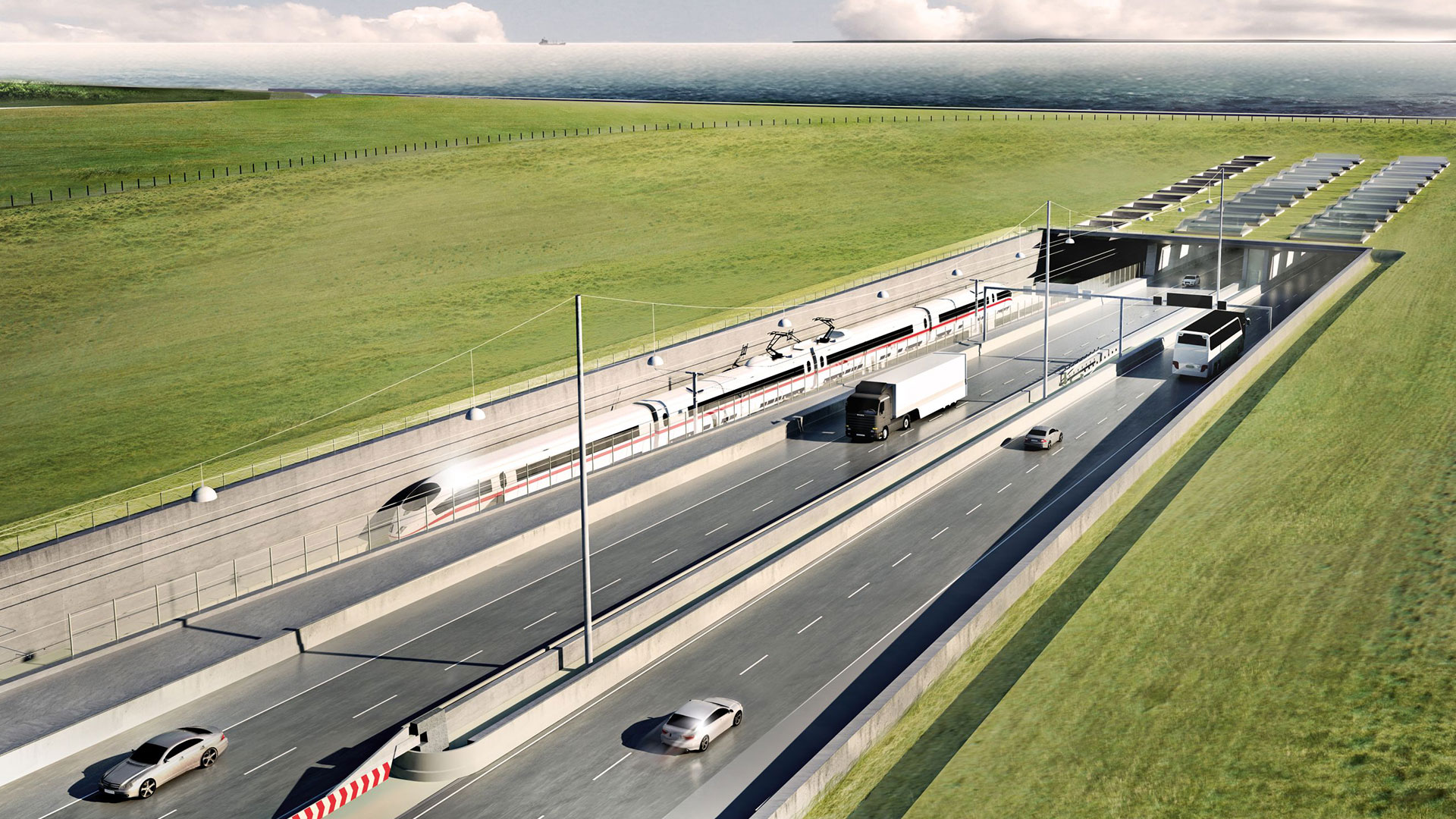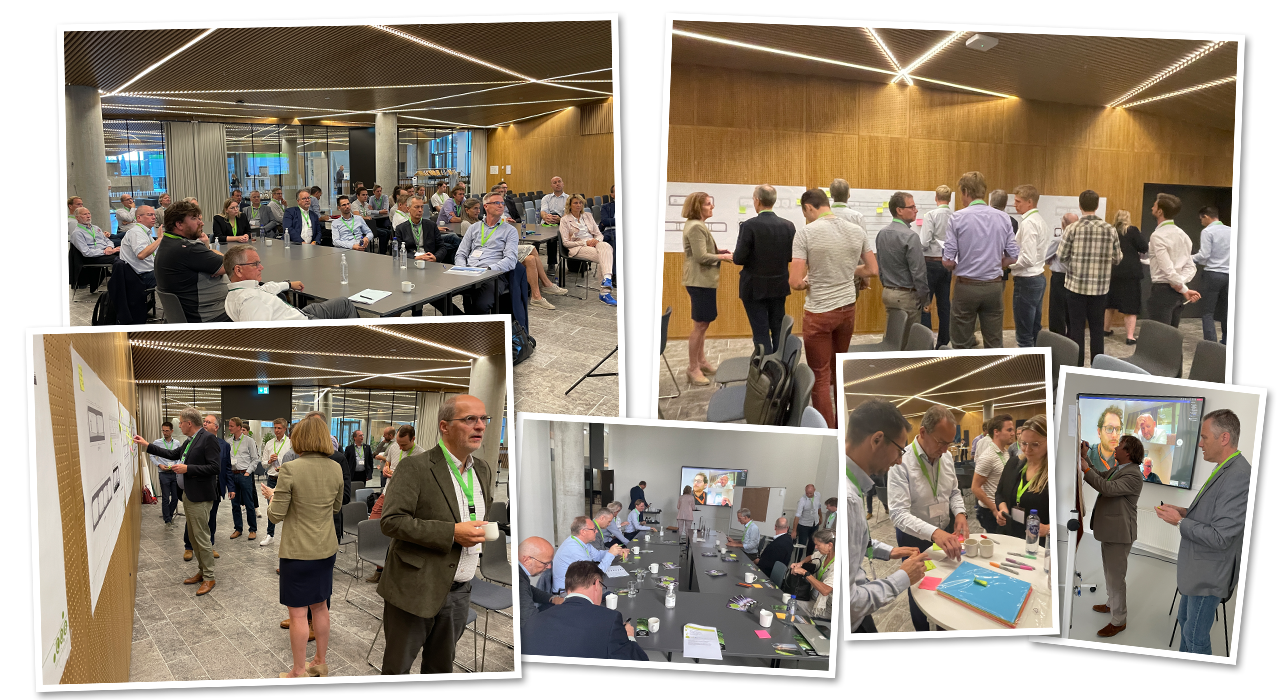European workshops ‘Bring your own tunnel’
Between spring 2022 and winter 2023 a number of workshops will be held, that will each focus on particular tunnel construction and renovation issue (rail or road). Tunnel owners will introduce a specific issue in each workshop. A group of selected experts (other tunnel owners, industry, and knowledge institutes) will examine the problems from different angles and build a ‘plan of action’ for the owner.
Workshop Monitoring and data collection of immersed tunnels
The latest workshop was at the Danish Road Directorate (DRD) on Tuesday the 6th of September 2022, during the World Tunnel Congress at Copenhagen. During this workshop, we explored how the monitoring strategy which was developed for older tunnels in The Netherlands, can be translated into knowledge we can use for newly built or not yet built tunnels such as the Fehmarnbelt tunnel in Denmark. By organising this workshop in collaboration with the Danish Road Directorate (DRD) and the Sund und Bælt organisation we can also investigate how this knowledge can be used for the other tunnels in Denmark.
Experts from the COB network and from the Fehmarnbelt tunnel/Sund und Bælt/DRD shared knowledge and discussed questions such as:
- Is the baseline for current monitoring strategies applicable for newly built tunnels and if so, how can we work towards that? Can we prioritise the monitoring systems and/or make categories for smaller projects to choose the most relevant/easy wins? Do other tunnels (i.e. immersed) have the same kind of problems? (question to be discussed by civil experts)
- The data from the Dutch and Flemish tunnels will be collected in an evolving database to do research and work towards baselines and limit values. There is significant potential for savings on cost and project runtime if data collection is uniformed/standardised to the relevant items. In addition, if the data is collected in a common data space that is controlled by the public tunnel owners, the evolving database enables advanced methods and modelling for maintenance and rehabilitation. Is this idea worth investigating? (question to be discussed by data experts/asset managers)
- How can we implement long-term monitoring and thereby improve our asset management strategy and asset management organisation? How can we make decisions about these long-term investments? (question to be discussed by asset managers/ management/decision makers. Special attention is needed for calculation methods and risk management).
The goal of this workshop
This workshop focused on two important aspects of monitoring and maintenance. For the asset owners, we focussed on the strategic questions for improving our asset management strategy and asset management organisation. For the civil and data experts we focussed on transforming the monitoring strategy (which was developed for older immersed tunnels in the Netherlands).
Workshop schedule
- 8.30 – 9.00 Walk-in
- 9.00 – 9.30 Plenary welcome and introduction by Jens Holmboe (Vejdirectoratet – Danish Road Directory) and Karin de Haas (director COB). With the participation of Michael Ebbesen (Danish Road Directory), Kim Smedegaard (Fehmarnbelt tunnel/Sund & Bælt), and Rijkswaterstaat (t.b.d.)
- 9.30 – 11.00 Parallel sessions to share knowledge and discuss issues such as:
Workshop A (Parallel session for civil experts/asset managers)
Is the baseline for current monitoring strategies applicable for newly built tunnels and if so, how can we work towards that? Can we prioritise the monitoring systems and/or make categories for smaller projects to choose the most relevant/easy wins? How can this strategy help us with other types of tunnels?
Workshop B (Parallel session for data experts/asset managers
The data from the Dutch and Flemish tunnels will be collected in an evolving database to do research and work towards baselines and thresholds. There is significant potential for saving on cost and project runtime if data collection is uniformed/standardised to the relevant items. In addition, if the collected data is accommodated in a common data environment that is under the collective control of the public tunnel owners, the evolving database enables advanced methods and modelling for maintenance and rehabilitation. Is this idea worth investigating?
Workshop C (Parallel session for asset managers/management/decision-makers)*
How can we implement long-term monitoring and thereby improve our asset management strategy and asset management organization? How can we make decisions about these long-term investments?
- 11.00 – 11.45 Plenary sharing of insights. What were the conclusions and insights in each of the three workshops? Possibility to reflect on each other by the chairs of the parallel sessions and the other guests
- 11.45 – 12.00 Wrap-up and follow-up by Jens Holmboe and Karin de Haas
- 12.00 – 13.00 Informal lunch and/or transport to World Tunnel Congress 2022 by subway.
After a plenary reception and introduction by Jens Holmboe (Vejdirectoratet – DRD) and Karin de Haas (director COB) and speeches by Bart Duijvestijn, Brenda Berkhout and Kim Smedegaard Andersen, the group split up into parallel sessions to share knowledge. (Photo’s: COB)
Contribute with your own tunnel project
In order to gather as much information as possible and to be as well prepared as possible for the future, it is important that the network grows. So join your European tunnel project now! If you want to contribute to this network with your own European tunnel project, please contact Ellen van Eijk at bringyourowntunnel@cob.nl.
>> Read more about bringing your own tunnel project










